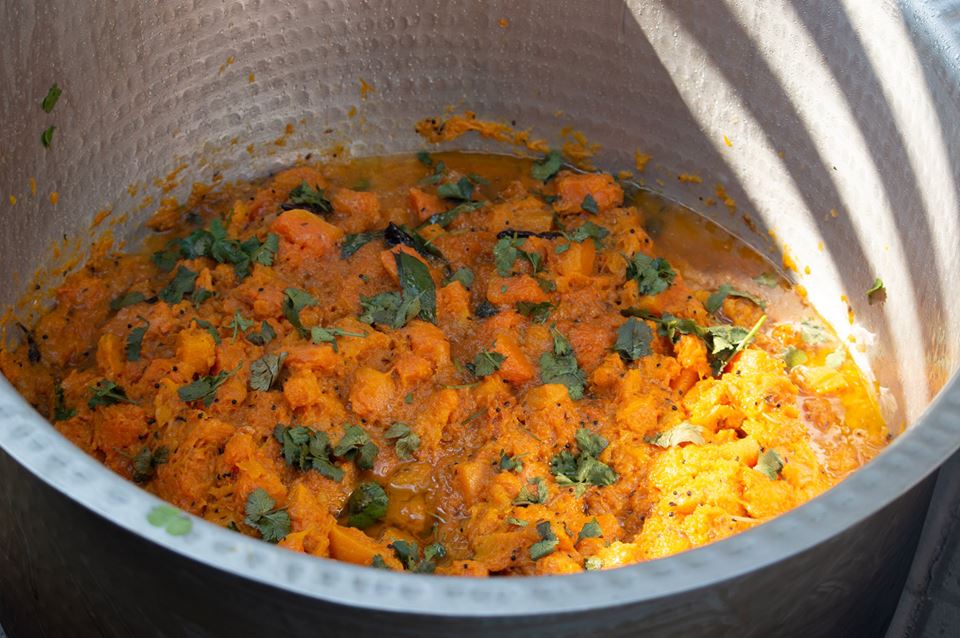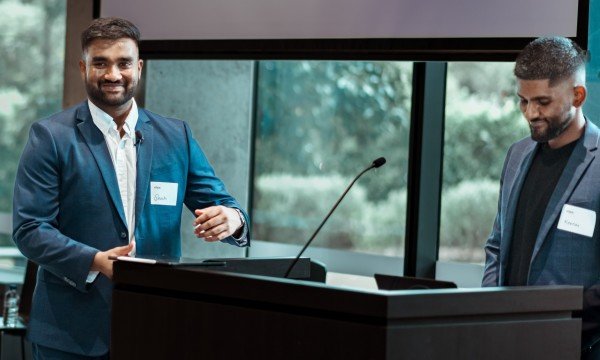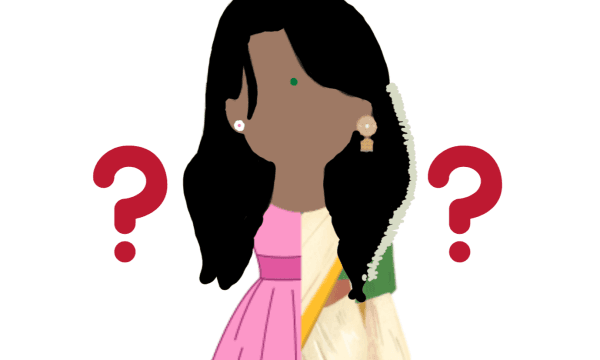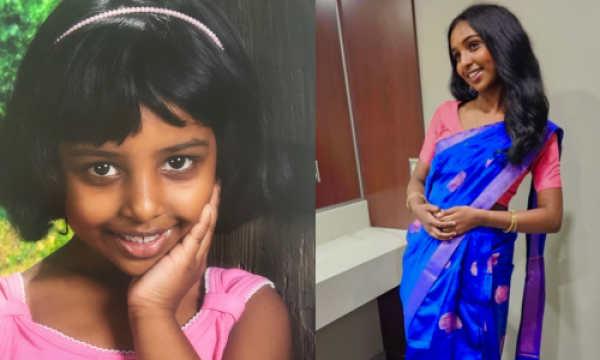
South Africa has one of the freest constitutions in the world. We are an all-embracing nation, at least in theory. There is only one hindrance if you're of South Asian descent, and that is the ‘aunty’ with an opinion about everything - from when you should get married to the amount of garam masala you add to a curry, and everything in between. This aunty is represented by many forms. She is the gossiping neighbour. She is the abusive ex-partner who still holds power. She is the mother-in-law who thinks no one is good enough to marry her son. She is the irritating factory floor manager who thinks his occupation provides a privilege over his staff. She is the receptionist at the general practitioner who rolls her eyes when you do not have medical aid, and she is the social media troll who picks on everything and everyone. She is the one who stirs the pot and then drops the spoon into the pot. So how do we, as free-thinkers of our society, address her without turning up the heat and avoid burning the curry pot in the process?
What does it mean to be an ‘aunty’ with an opinion and where should the line be drawn?
Once again, I needed some guidance on my somewhat elaborate thoughts, so I consulted Guru Deena Govender. I feel there is a guideline that is truly absent in our 158-year-old diaspora, especially in consideration of the excessive number of socio-cultural problems and substance abuse that exists in some societies. The Guru and I had a casual conversation and I probed him with some questions for which I apologised in advance as these are not regular questions that one asks a spiritual leader. I was willing to risk shock and horror and I was quite impressed that he remained composed throughout our conversation despite my use of some very non-religious words. My thoughts are that we should not shy away from uncomfortable questions. I also felt more confident that Guru Govender is aligned with being a disruptor affecting positive change in a spiritual space. He has some new-age thoughts on core issues which negatively impact our South African Hindu society at large. Here are the nuggets I took out from our conversation:
The aunty says that you should get married at 24 and have at least two children by the time you are 32...the first must be a boy, of course. The aunty says that you should cook for your husband while he works hard at his 9-5 job, despite you working the same hours, fetching your children from school and still remember to wax your legs. The reality is that gender roles in South Africa have changed and of course they would change for Hindu women. Guru Govender shares his thoughts that women are much more independent and prominent as members of society. They lead in the workforce and are academics. Women are heading businesses and households and are mentally stronger than ever before. Hindu scripture defines this age as Kali Yuga – Yug being of the Mother and there is, therefore, a great emphasis than ever before on the female energy. The number of women who attend temples is higher and women are taking on roles that traditionally belonged to men. I cheered loudly when an Indian court ruled that women are allowed to enter an Ayyapen temple after a 20-year legal battle. I asked Guru Govender if men are becoming more subservient and if masculinity is affected. He pondered on this point before saying that both men and women in our society struggle with social pressures and a number of other factors that challenge identity. It is the dawn of feminine energy and this is prevalent in the number of places of worship dedicated to the divine feminine energy; Shakti. He emphasised that Shakti resides in every single woman and it is something to be embraced so we must also adapt in allowing women to take on those once male-dominated roles.
The aunty also says to wear your thaali every day, change it in three months because that is the way we do it. Some women I have spoken with have no idea why they are told to wear a thaali or mangalsutra. Some choose not to wear, while others wear it with a gleaming pride. Some mothers-in-law frown if they inspect and find it packed away with the other jewelry. I really wanted to clarify this important representation of a Hindu bride. Guru Govender explained to me that the yellow stringed thaali that a Tamil bride wears represents physical, mental and spiritual purity. The heritage of the thaali is linked to social aspects too as men would offer respect to a married woman by bowing his head and not making direct contact. The charms tied to the thaali are meant to represent family lineage and after three months the bride’s mother adds more ornaments as a gesture of love to her daughter. Phew – this was a load to take in! It is rather unfortunate that in the South African context, the sanctity of Hindu marriages is on the decline. Guru Govender said that aspiring towards Thiru Kalyanam (Truthful Marriage) should be the ultimate goal. The deities of our Hindu mythology share examples of relationship ideas: Shiva and Parvati being one, as is Vishnu and Sri Devi. Guru Govender encourages devotees to consider marriage beyond a piece of paper that can be annulled in court with little recourse, but to embrace it with Oyir (Life), Arul (Spirit) and Atma (Soul).
The aunty tells you that when your spouse dies you are confined to a year of suffering, or what will the people say! I asked Guru Govender about a few things that are considered stigmas in the social space, including that when we are at our lowest moments in life, and we need to reach out to our higher powers. My thoughts after the discussion were that things are not prescribed, instead we are able to make conscious choices about what is right and wrong, such as attending a prayer when period pain takes full control of our wombs. In times of mourning, we must reach out to divine energy for healing. I think that understanding the attachment to life and death are important facets of spiritual growth. My thoughts strongly represent someone who was raised by a single mother and who acted as both a mother and father to my sister and me. In regards to single parents we must honour them with all the respect we can muster for they have an unmatched strength in our society and for taking the baton to raise successful children. Guru Govender agrees that people are sometimes caught up in an illusion of what life is meant to be. I asked him about people living for that white picket fence dream and how they react or rebel when life does not work out that way. He says that we need to refine our thinking and adapt. Reality is different and we have to respect ourselves and the roles that we play in life such as being single parents or not living in stereotypes.
This aunty just loves to gossip about how someone dresses or how they express themselves and whom they date. I asked Guru Govender about sexuality and religion. He is adamant that there should be no right of admission in places of worship and that all individuals are children of God irrespective of their sexual preferences. We should not be visiting a place of worship to concern ourselves over someone else’s sexuality and everyone must be considered a brother or sister. We are human and we are not qualified to express stereotypes. Our goal should be to embrace the essence of Shiva and Shakti in everything we do. Shiva’s qualities are about the elements – earth, air, water, fire, and spirit. He is brave, industrious, an adventurer with strength and valour. Shakti is energy, prosperity, happiness, joy, and unity. Together Shiva and Shakti become life. Our family lives should primarily be built on the foundations of ShivShakti and Matha-Pitha-Guru-Devam.
The aunty in me came out and I asked him about alter egos and hyper egos especially during festivals. Guru Govender said that during festivals such as kavady he encourages devotees to have the divine ego to express their spiritual gratitude but that he constantly guides devotees against false ego. I found this interesting as I challenge myself to address ego constantly, whether in the corporate space or in social segments. I am also a constant observer of other’s behaviour. Perhaps I am missing expressions of divine ego when I observe. The other thing I notice relates to partners who are abusive to their significant others. This is on the rise in our society and we would be ignorant to ignore this. Guru Govender tackled my next ‘aunty’ question with grace. He said that in this current age abuse is damaging our communities on a massive scale. There are times when the cycle of abuse is also a factor and people need to become conscious of the impact of their behaviours. The best way is to talk about it to someone who is in a position to provide guidance without judgment and to get advice. Through his counseling sessions, he tries to relate on a human level to understand the deeper issues that impact by being realistic; there is no spiritual connection in abuse...it is how we are reared and we need to fix these things about ourselves in a realistic manner.
So what does this aunty teach us about ourselves? I think that the fundamental lesson is that we are human and we are susceptible to a heap of human flaws! Despite judgments and social pressures, there is an opportunity to learn every day about how to be better people. I believe that as our lifestyles shift into a more western value system that it is important to find the right balance with our ancient spirituality. Oftentimes we forget that we are not perfect and we do not have to live perfect lives all the time. I think that it really is ok to make mistakes and to move forward regardless of what the proverbial aunty has to say.
As South Africans, we have survived so much from indenture and poverty to apartheid that brought with it sanctions and a total shut off from the global community at one stage. These pressures have built a kind of resilience that I, for one, am proud of. I recently read a book called Untouchable by Mulk Raj Anand first published in 1935. It really got me thinking about South Africans and our journey as the ‘untouchables’ of Africa purely for our displacement and social imbalances. For those of us who have moved from the townships of Durban to the suburbs of Johannesburg, I do believe that it is possible to grow out of the molds that we are told defines who and what we are from birth. No longer are Tamil South Africans the submissive and complicit cane cutters but we are the game-changers, goal-post shifters, disruptors, inventors and pioneers in our South African society. And this, undoubtedly, is something to be exceptionally proud about. Now, dearest aunty...I have something more important to do with my life!

























